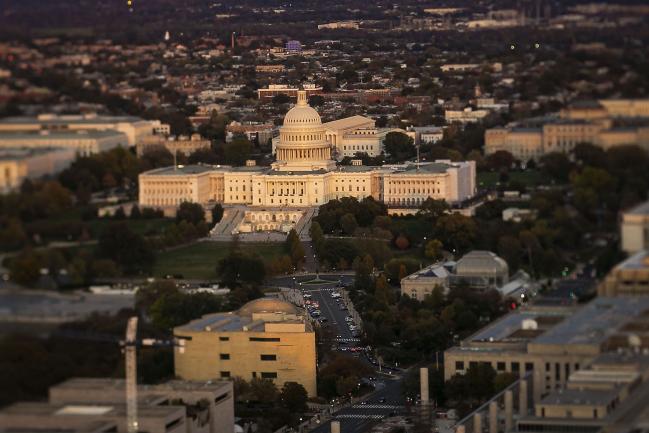(Bloomberg) -- Congress is turning its sights on China to prevent Russia from skirting economic penalties levied by the U.S. over the invasion of Ukraine.
Sentiment is rising for so-called secondary sanctions on any country or entity that helps Russia evade sanctions. On Thursday, Republican Senator Marco Rubio introduced a bill specifically aimed at Chinese financial institutions that conduct transactions with Russian entities through any alternative to the SWIFT financial messaging system.
“We cannot allow China to become a safe haven for Russian firms seeking to avoid international sanctions,” Rubio said in a statement. “My bill would make it nearly impossible for Chinese banks to access the U.S. financial system if they choose to transact with Russian banks using Chinese or Russian financial messaging systems.”
READ MORE: Why China’s Payment System Can’t Easily Save Russia: QuickTake
Rubio said the legislation is a “powerful” disincentive for China deepening its ties with Russia. It would impose sanctions on any Chinese financial institution that uses the Cross-Border Interbank Payment System, or CIPS, to help Russia evade sanctions.
Senator Chris Van Hollen, a Maryland Democrat, said he has discussed the issue of secondary sanctions with President Joe Biden’s administration. Any such move by the U.S. should be done in coordination with European allies, he said.
The moves in Congress come as Biden is set to speak with China’s President Xi Jinping on Friday as the U.S. leader looks to shore up global pressure on Russia to halt its war in Ukraine. It will be their first call since November, and follows a meeting in Rome Monday between National Security Adviser Jake Sullivan and China’s top diplomat, Yang Jiechi.
“The two leaders will discuss managing the competition between our two countries, as well as Russia’s war against Ukraine and other issues of mutual concern,” the White House said in a statement.
Biden to Speak With Xi Friday in Bid to Pressure Putin (2)
Lawmakers acknowledged that Xi could be one of the few people in the world capable of persuading Putin to pull back from Ukraine, though that’s tempered by skepticism that he would take that extraordinary step after publicly backing the Russian president in the weeks leading up to the invasion.
“Could Xi be aggressive enough to convince him to do something different?” Senator Jim Risch, the top Republican on the Foreign Relations Committee said, referring to Putin. “Perhaps but I don’t think he’d do it.”
The CIPS system was set up in October 2015 as a settlement and payment clearing system for transactions that use the yuan, also known as the renminbi, or “people’s currency.” It is supervised by China’s central bank but is run by CIPS Co. Ltd in Shanghai, with ownership spread among dozens of shareholders including state-owned Chinese financial institutions, exchanges and Western banks. While the system handles only a fraction of global financial transactions, lawmakers worry it could become a back door for Russian banks and oligarchs to transfer money out of the country.
©2022 Bloomberg L.P.
